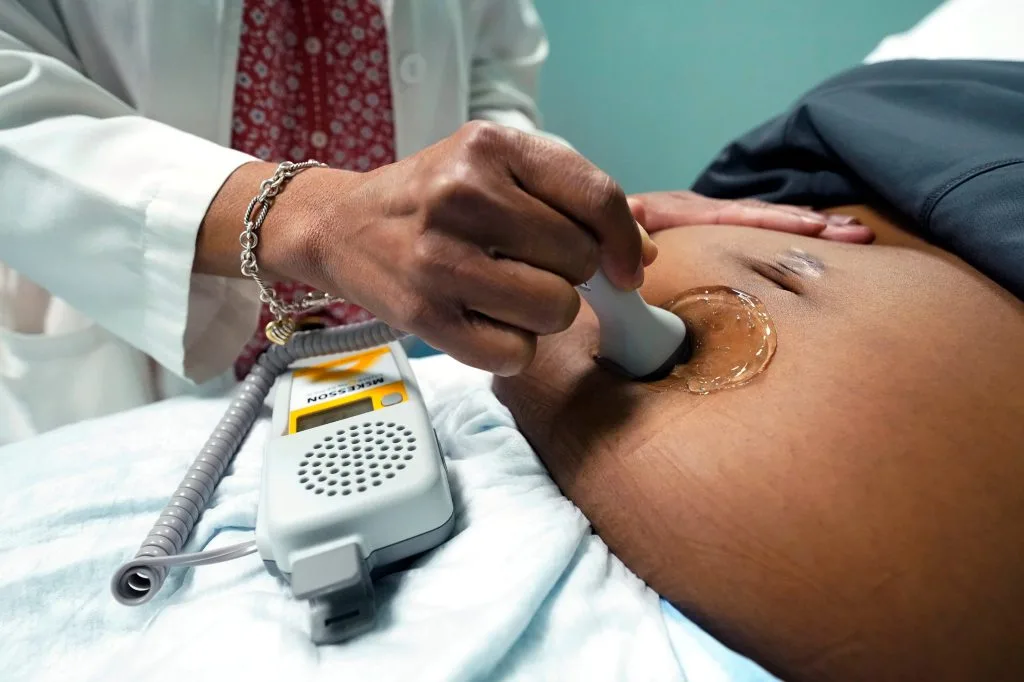
The Black maternal health crisis is real. Black women die from pregnancy-related complications at a rate three times higher compared to white women nationwide, regardless of income level and education. This crisis also impacts Black babies, who die at three times the rate of white babies, during their initial hospital stays.
Since Day One, the Biden-Harris administration has been committed to eliminating this troubling health disparity by making investments in community-tailored programs that work. In 2022, the administration rolled out a first-of-its-kind Blueprint for Addressing the Maternal Health Crisis. This blueprint is necessary and our work to improve health outcomes is intentional.
At the U.S. Department of Health and Human Services, we are taking unprecedented action to reduce such disparities and strengthen Black maternal health by expanding coverage, implementing new policies, and providing funding to ensure safer pregnancies and postpartum services for new parents and their babies.
The president’s 2023 budget provided HHS with even more resources to improve the health of our nation’s moms. It invested $470 million across HHS agencies to reduce maternal mortality and morbidity. HHS’ Health Resources and Services Administration made nearly $90 million in awards to support the White House blueprint and a whole-of-government strategy to combat maternal mortality and improve maternal and infant health, particularly in underserved communities.
We are partnering with Historically Black Colleges and Universities (HBCUs) to promote the development of the health care workforce, particularly in birth workers spaces, such as doulas, midwives and lactation support specialists. Women with doula care have a 22% lower risk of preterm birth. Evidence such as this has driven historic HHS funding to make community-based doulas more accessible.
In the Hampton Roads area, we are working with Sentara Health, Virginia Hospital and Healthcare Association, The Greater Peninsula C.A.R.E.S. Foundation, Celebrate Healthcare and other partners on several initiatives including a regional maternal health convening on Tuesday, 8:30 a.m.-4 p.m., and Wednesday, 8:30 a.m.-12 p.m., at The Gethsemane Baptist Church, 5405 Roanoke Ave., in Newport News. This special meeting will focus on topics such as developing a culturally competent workforce, postpartum coverage, birth worker reimbursements, management of chronic conditions prior to pregnancy, and working with faith and community leaders on successful engagement strategies with health care professionals. Best practices will be shared and recommendations provided in the maternal health space that will lead to a reduction in health disparities.
We are broadening our reach by teaming up with local faith-based and community organizations to help connect more Black moms-to-be with high quality resources and services, including mental health support, health care coverage, doula access, vaccinations and more.
Another way HHS is making a difference is through our Center for Faith-based and Neighborhood Partnerships’ ongoing national M.O.M.S. Tour — which is a community baby shower that targets new and expectant minority mothers in communities with high maternal and morbidity rates. There will be a M.O.M.S. Tour event later this year in Chesapeake.
HHS has worked to increase access to rural maternal care, strengthen local health workforces to look like the communities they serve, promote timely treatment and quality care through the Hear Her campaign, and launched HRSA’s Maternal Mental Health Hotline, which can be reached at 1-833-TLC-MAMA.
Thanks to funding from the U.S. Centers for Disease Control and Prevention, we created perinatal quality collaboratives to implement state-wide, equity-focused quality improvements when it comes to care outcomes for women and infants.
HHS is also strengthening our public health infrastructure through CDC support for state maternal mortality review committees. These committees aim to help us better understand the drivers of maternal mortality and will develop recommendations to prevent future deaths.
It’s unacceptable for Black women to experience poorer health outcomes. We can do better. This is our collective responsibility. We must all channel our leadership and strength as we take on this fight to call out and eliminate inequities.
Melissa A. Herd is the acting U.S. Department of Health and Human Services director in District 3, covering Virginia, Delaware, Maryland, Pennsylvania, West Virginia and the District of Columbia.

